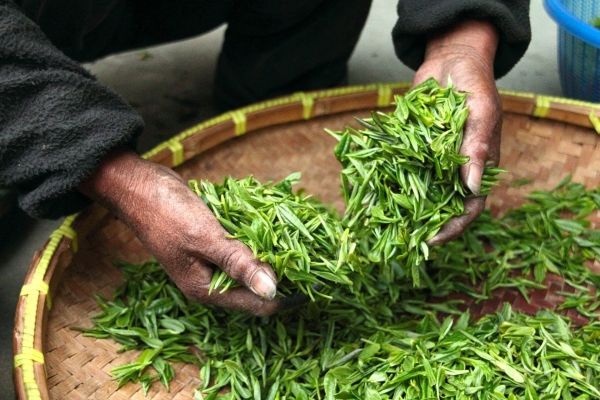An antioxidant found in green tea may increase levels of p53, a natural anti-cancer protein, known as the “guardian of the genome” for its ability to repair DNA damage or destroy cancerous cells. Published today in Nature Communications, a study of the direct interaction between p53 and the green tea compound, epigallocatechin gallate (EGCG), points to a new target for cancer drug discovery.
“Both p53 and EGCG molecules are extremely interesting. Mutations in p53 are found in over 50% of human cancer, while EGCG is the major anti-oxidant in green tea, a popular beverage worldwide,” said Chunyu Wang, corresponding author and a professor of biological sciences at Rensselaer Polytechnic Institute. “Now we find that there is a previously unknown, direct interaction between the two, which points to a new path for developing anti-cancer drugs. Our work helps to explain how EGCG is able to boost p53’s anti-cancer activity, opening the door to developing drugs with EGCG-like compounds.”
Wang, a member of the Rensselaer Center for Biotechnology and Interdisciplinary Studies, is an expert in using nuclear magnetic resonance spectroscopy to study specific mechanisms in Alzheimer’s disease and cancer, including p53, which he described as “arguably the most important protein in human cancer.”
Read more at Rensselaer Polytechnic Institute
Image by highnesser from Pixabay


